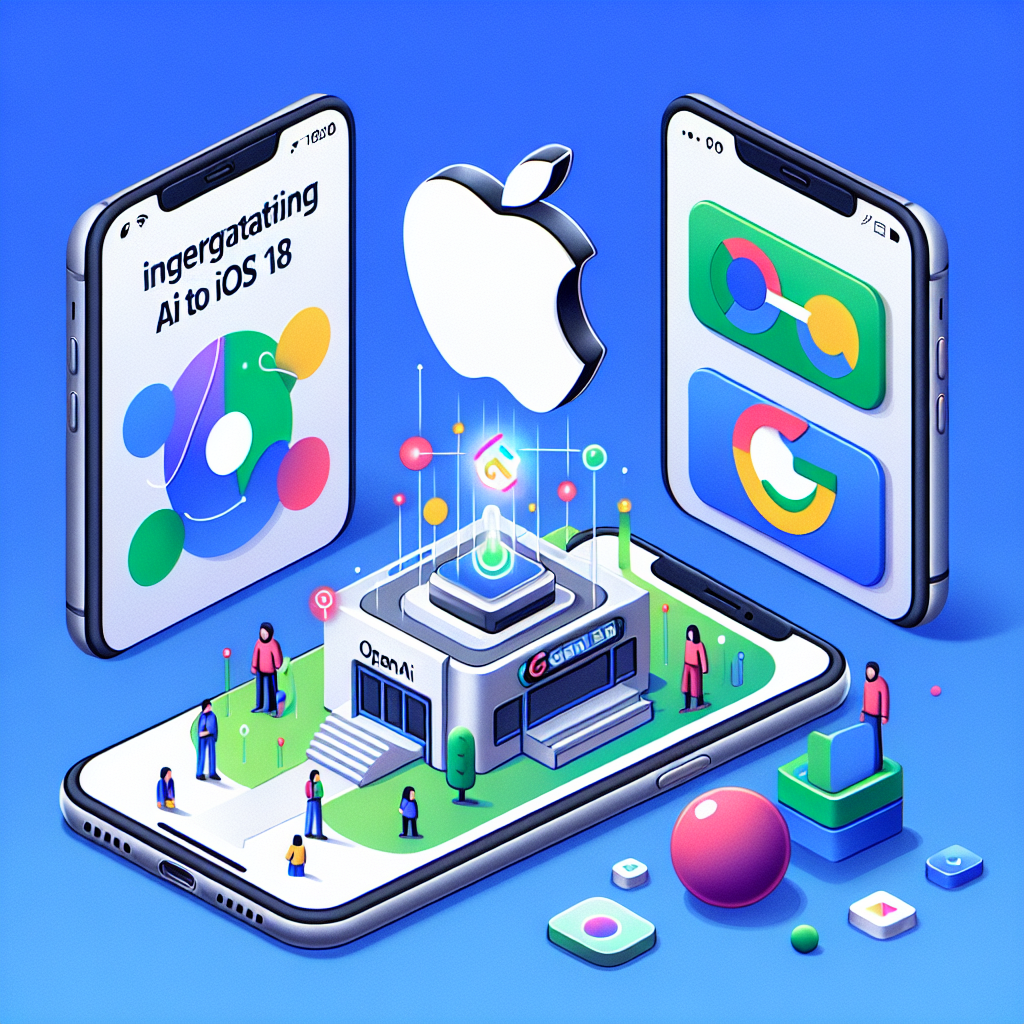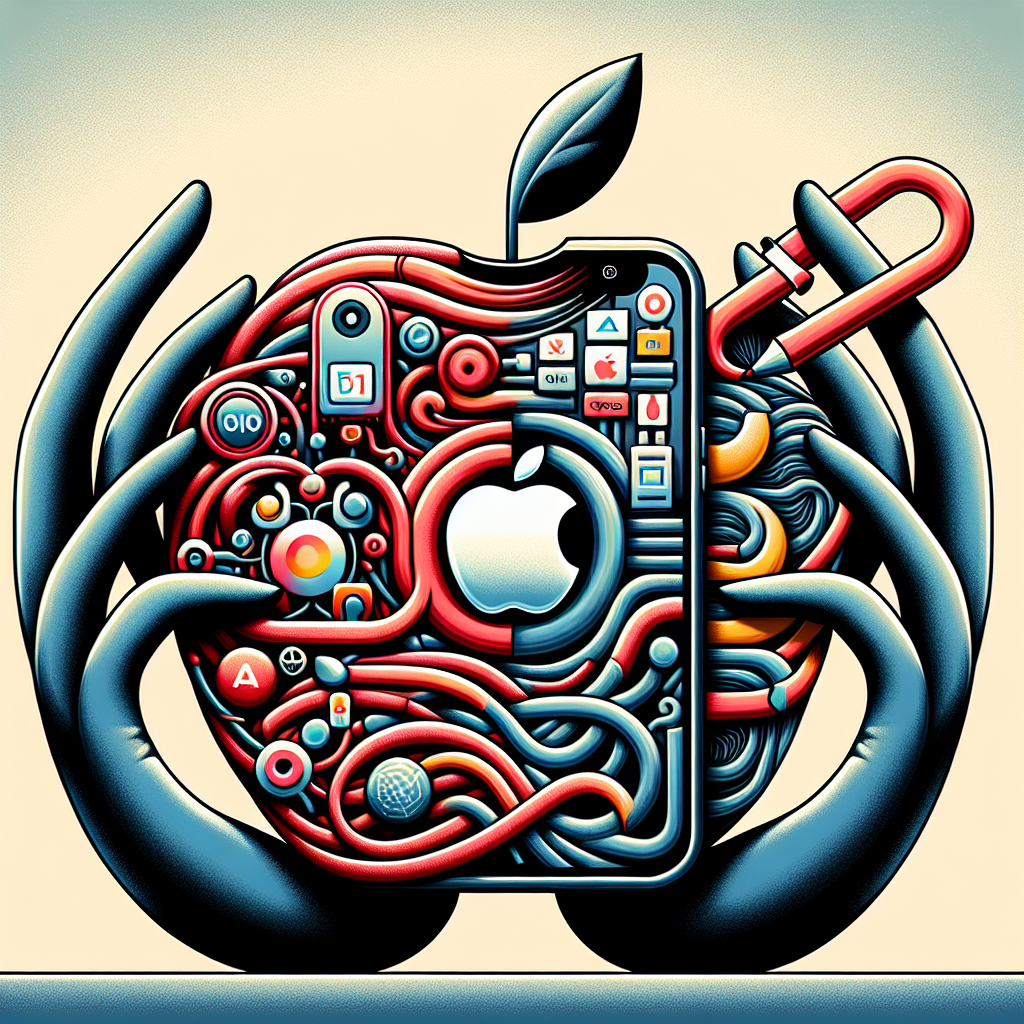-
Table of Contents
- Apple’s Strategic Move: Integrating Generative AI in iOS 18 with OpenAI and Google Partnerships
- The Genesis of the Partnership
- Key Features of Generative AI in iOS 18
- Implications for User Privacy and Data Security
- Case Studies: AI Integration in Consumer Technology
- Future Prospects: The Road Ahead for iOS and AI
- Conclusion: A Transformative Collaboration
Apple’s Strategic Move: Integrating Generative AI in iOS 18 with OpenAI and Google Partnerships

In an unprecedented move, Apple Inc. is reportedly planning to integrate advanced generative AI capabilities into its upcoming iOS 18 software for iPhone, leveraging partnerships with leading AI innovators OpenAI and Google. This collaboration aims to enhance the iPhone’s functionalities, making it a powerhouse for AI-driven applications. This article delves into the specifics of this partnership, exploring the potential impacts and benefits for users and the broader tech industry.
The Genesis of the Partnership
The decision by Apple to partner with OpenAI and Google marks a significant shift in its approach to artificial intelligence. Traditionally known for its closed ecosystem and in-house development, Apple’s collaboration with these AI giants indicates a strategic pivot that aims to harness external expertise to drive innovation. This section explores the reasons behind this partnership and what it entails for the future of iOS.
- Access to Cutting-Edge AI Technology: By partnering with OpenAI, known for its revolutionary AI models like ChatGPT, and Google, which has extensive AI research and applications, Apple can integrate state-of-the-art generative AI technology directly into iOS.
- Enhancing User Experience: The integration of advanced AI capabilities is expected to improve user interaction with their devices, offering more intuitive and responsive experiences.
- Staying Competitive: As AI becomes a central component of mobile operating systems, Apple’s partnerships ensure it remains competitive with rivals such as Android, which has also been heavily investing in AI.
Key Features of Generative AI in iOS 18
The introduction of generative AI into iOS 18 is set to revolutionize how users interact with their iPhones. This section highlights the key features and functionalities that will be introduced.
- AI-Powered Virtual Assistant: Siri is expected to undergo a significant overhaul with enhanced understanding and generative capabilities, providing answers and performing tasks with unprecedented accuracy and depth.
- Real-Time Language Translation: Leveraging AI, iOS 18 could offer real-time, on-device language translation without the need for internet connectivity, enhancing communication for global users.
- Advanced Content Creation: Generative AI will enable users to create rich content, such as music, art, and writing, directly from their iPhones, tapping into AI’s creative potential.
Implications for User Privacy and Data Security
While the integration of generative AI into iOS 18 promises numerous benefits, it also raises significant concerns regarding user privacy and data security. Apple, OpenAI, and Google will need to navigate these issues carefully to maintain user trust.
- Data Handling and Privacy: Apple will need to ensure that all AI processes comply with its stringent privacy policies, especially given its public commitment to user data protection.
- Transparency in AI Operations: It will be crucial for Apple to maintain transparency about how AI models are trained and how data is used, to avoid any potential misuse or ethical concerns.
- Security Measures: With increased AI integration, iOS devices could become targets for new types of cyber threats. Robust security measures will be essential to protect users from potential risks.
Case Studies: AI Integration in Consumer Technology
To better understand the potential impact of Apple’s move, it is helpful to look at previous instances of AI integration in consumer technology. This section examines case studies from other tech companies that have successfully incorporated AI into their products.
- Google Pixel: Google has integrated AI into its Pixel smartphones, enhancing camera capabilities and user interface personalization, which has been well-received by users.
- Amazon Alexa: Amazon’s Alexa uses AI to learn from user interactions to improve responsiveness and functionality, setting a benchmark in AI-driven user experience.
- Samsung Bixby: Samsung’s Bixby utilizes AI to offer a more personalized experience through voice and image recognition, adapting to the user’s habits over time.
Future Prospects: The Road Ahead for iOS and AI
The integration of generative AI into iOS 18 is just the beginning of a new era in mobile technology. This section discusses the future prospects and potential developments that could arise from Apple’s partnerships with OpenAI and Google.
- Continuous Improvement: AI models will continue to evolve, and future iOS versions will likely see more sophisticated AI integrations as technology advances.
- New Business Models: AI could open up new avenues for app developers and businesses, creating novel business models centered around AI-driven services and capabilities.
- Broader Impact on Society: As AI becomes more pervasive in everyday devices, its impact on society will grow, potentially changing how we interact with technology on a fundamental level.
Conclusion: A Transformative Collaboration
The partnership between Apple, OpenAI, and Google to integrate generative AI into iOS 18 represents a significant milestone in the evolution of mobile technology. By combining their strengths, these tech giants are not only enhancing the iPhone’s capabilities but are also setting the stage for future innovations that could redefine user experiences. As we anticipate the release of iOS 18, it is clear that the integration of generative AI will bring both exciting opportunities and new challenges to the forefront of the digital world.

